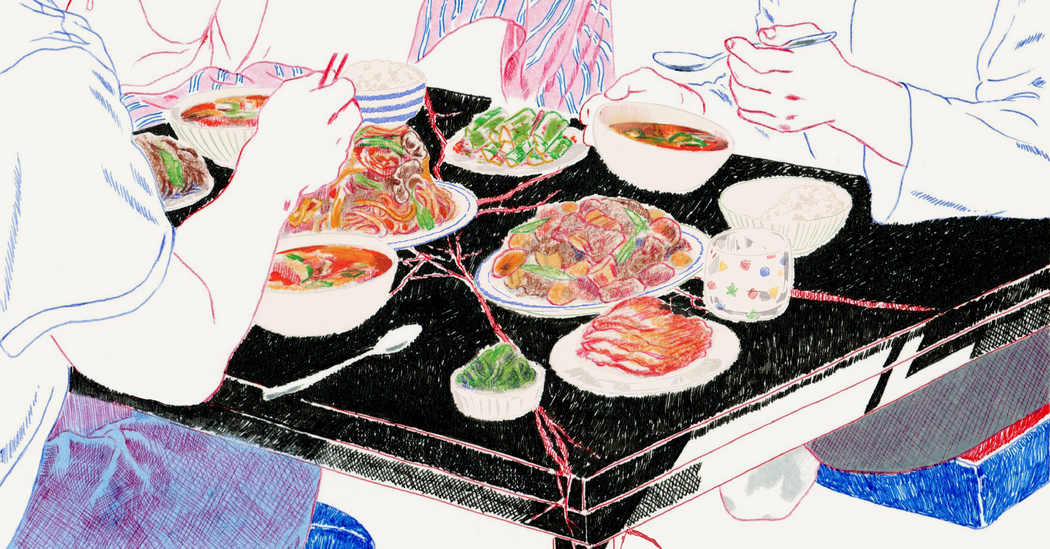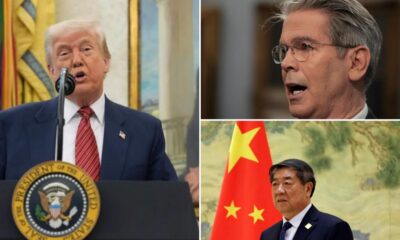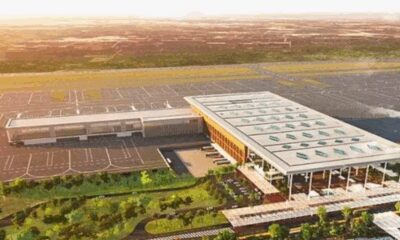Breaking News
Opinion | The South Korean President’s Ouster Won’t Heal a Fractured Nation

My relationship with my South Korean parents is strong and accepting, especially when it comes to my same-sex marriage. However, we hit a roadblock when discussing Korean politics. Despite our differences, we maintain an open dialogue on most topics.
They support Yoon Suk Yeol, South Korea’s former conservative president, and his controversial attempt to impose martial law. This divisive event highlighted the deep political divide in our country.
While my parents praised Yoon’s actions, I condemned them as undemocratic. Fortunately, Yoon’s plot failed, leading to his impeachment and removal from office by the Constitutional Court.
The fallout from Yoon’s failed scheme exposed the ongoing political polarization in South Korea. The long-standing division between anti-Communist and pro-democracy camps has fueled intense rivalry and power struggles.
Despite achieving full democracy in 1987, South Korea’s political landscape remains fraught with animosity and personal agendas. Presidents have been impeached, imprisoned, or faced criminal investigations, perpetuating a cycle of political vendetta.
The current political environment in South Korea is marred by nationalism, corporate influence, and a lack of progressive values. The erosion of democracy is evident, with citizens turning to online sources for information amidst low trust in the political system and media.
The realization that South Korea may no longer be a true democracy is setting in. The recent martial law incident underscored the fragile state of democracy, with parties engaging in quasi-civil war tactics rather than governance.
The ongoing political strife has further divided the population, with protests and hostility dominating public discourse. The upcoming elections may bring a change in leadership, but addressing the underlying issues of political dysfunction and polarization is crucial for the future of democracy in South Korea.
Polls suggest a desire for a change in government among South Koreans, potentially favoring the Democratic Party. However, the deep-rooted problems in politics cannot be solved overnight through elections or court rulings.
Without reflection, dialogue, and compromise, South Korea risks further deterioration of democracy and perpetuation of the destructive political game that has plagued the nation for years.
Se-Woong Koo, a South Korean writer and journalist, highlights the challenges facing South Korea’s democracy. The need for introspection and unity is crucial to steer the country away from the current path of political turmoil.
The Times welcomes diverse perspectives on its articles and encourages readers to share their views. Contact us at letters@nytimes.com.
Stay updated on The New York Times Opinion section through Facebook, Instagram, TikTok, and other platforms.
-

 Destination8 months ago
Destination8 months agoSingapore Airlines CEO set to join board of Air India, BA News, BA
-

 Breaking News9 months ago
Breaking News9 months agoCroatia to reintroduce compulsory military draft as regional tensions soar
-

 Tech News12 months ago
Tech News12 months agoBangladeshi police agents accused of selling citizens’ personal information on Telegram
-

 Gadgets3 months ago
Gadgets3 months agoSupernatural Season 16 Revival News, Cast, Plot and Release Date
-

 Productivity11 months ago
Productivity11 months agoHow Your Contact Center Can Become A Customer Engagement Center
-

 Breaking News10 months ago
Breaking News10 months agoBangladesh crisis: Refaat Ahmed sworn in as Bangladesh’s new chief justice
-

 Gadgets2 weeks ago
Gadgets2 weeks agoFallout Season 2 Potential Release Date, Cast, Plot and News
-

 Toys11 months ago
Toys11 months ago15 of the Best Trike & Tricycles Mums Recommend























